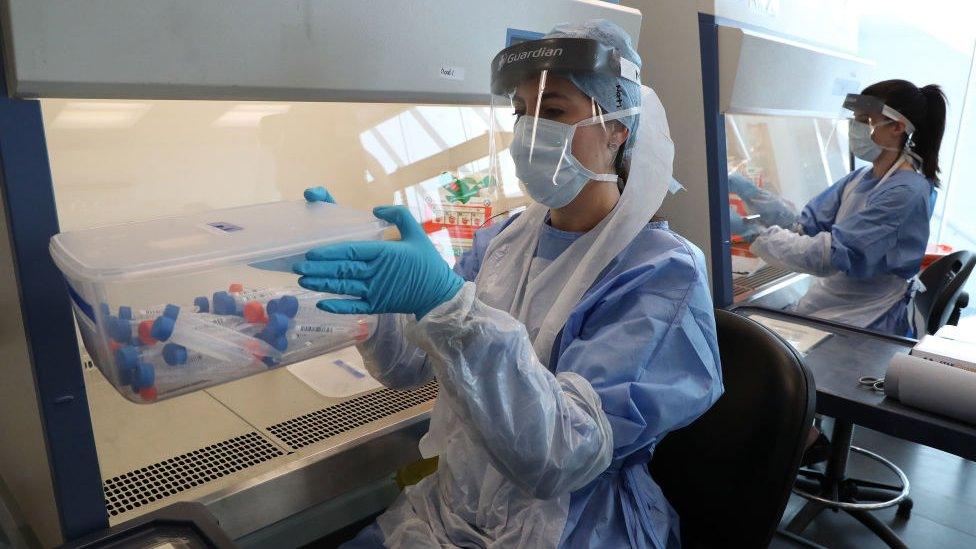Coronavirus: NHS boss paints critical care picture by numbers
- Published
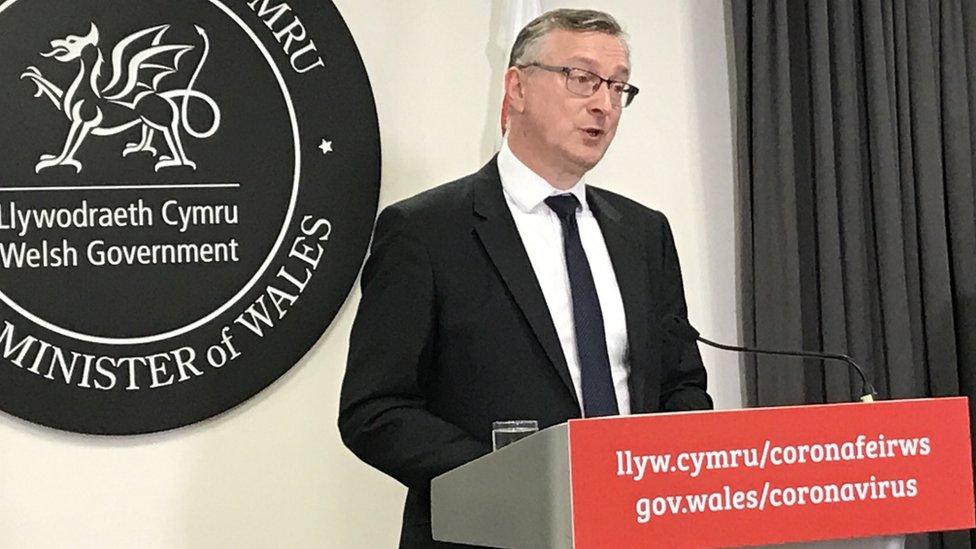
Dr Andrew Goodall addressing Thursday's news conference
The chief executive of the Welsh NHS has painted a picture of life in late May inside the critical care units battling coronavirus.
Dr Andrew Goodall said the average age of someone being treated for the virus in critical care was 56.
"You may have expected that to be older," he told the Welsh Government's daily news briefing.
And "less than 10% of people admitted to hospital are admitted to critical care", he said.
"We originally thought this figure would be much higher."
Dr Goodall confirmed that the majority of people in intensive care with Covid-19 are men, and the patients who go there do so a "day or two" after they are first admitted to hospital.
Currently, 493 people are in hospital in Wales with confirmed cases of the virus, 55 of them in critical care.
Three quarters of intensive care patients are put on a mechanical ventilator within the first 24 hours, he said.
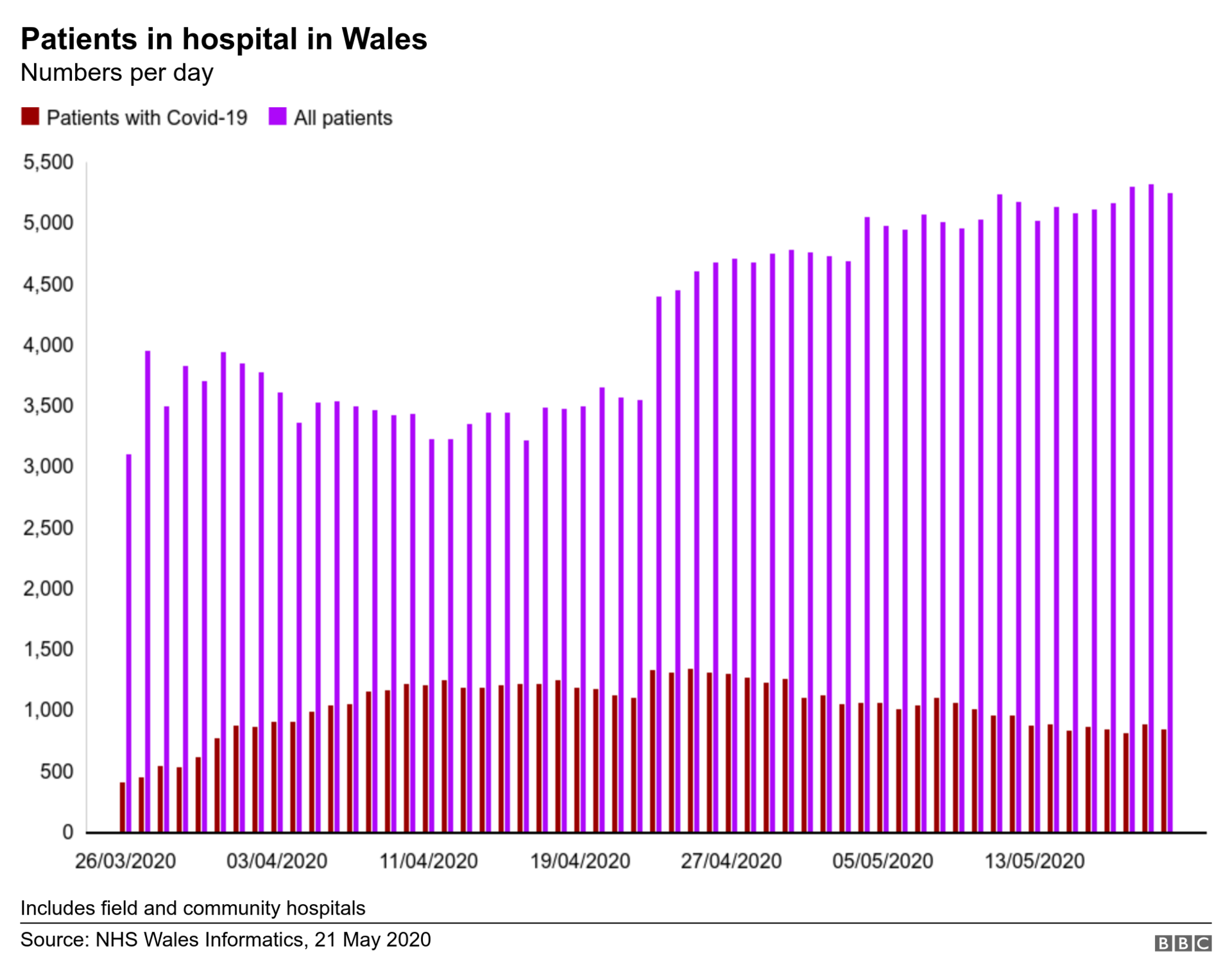
Typically, patients getting basic or advanced help with their breathing have that support for around 11 days, and 85% of those patients receive that advanced support due to the "nature of this virus", Dr Goodall said.
"People with coronavirus can be very ill," he said. "In some cases people have been on a ventilator for up to three weeks, as well as receiving support for their cardiovascular system and their kidney."
As he took us through this array of statistics on Covid-19, some grim, some less so, there was also a measure of optimism alongside them.
"We know that coronavirus can be fatal, but we are seeing lots of people leaving critical care units and hospitals after many, many weeks of receiving the most intensive care that the NHS could offer."
'Rehabilitation is essential'
Dr Goodall said the effect of coronavirus "varies from person to person".
But he warned that anyone spending "more than a few days in critical care" would require "significant ongoing support".
"Access to rehabilitation is essential," he said.
Around 60% of critical care beds were empty, 357 were available, using the extra "surge capacity" that had been created to cope with the pandemic, said Dr Goodall.
Nevertheless, critical care continued to be "under pressure".
Praising staff at the "sharp end of the pandemic" for their "exceptional efforts", he urged people to "continue to support our NHS and care system".
And there was that familiar warning for us all.
Follow the advice in Wales to "stay home, to protect yourself and your loved ones", Dr Goodall said.
"And if you do go out, please stay local."
- Published21 May 2020
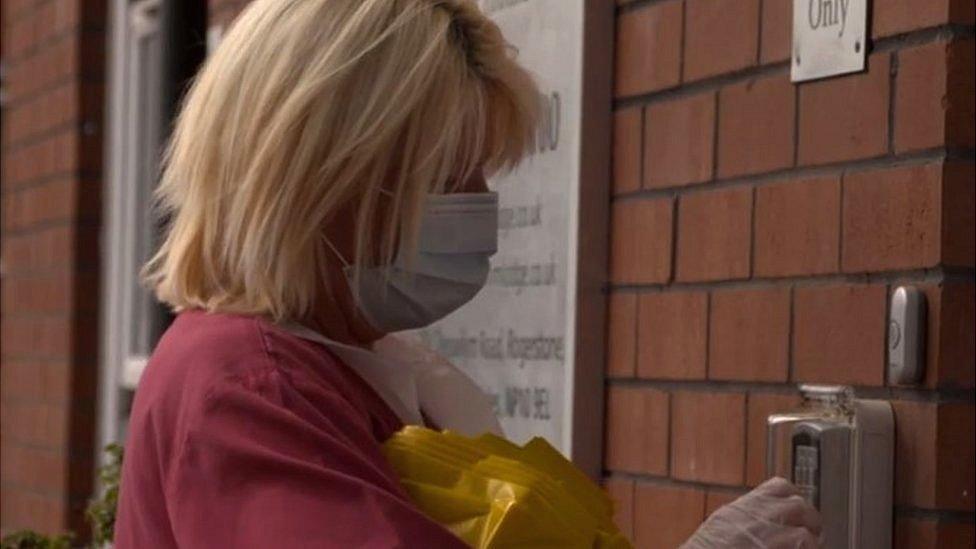
- Published21 May 2020
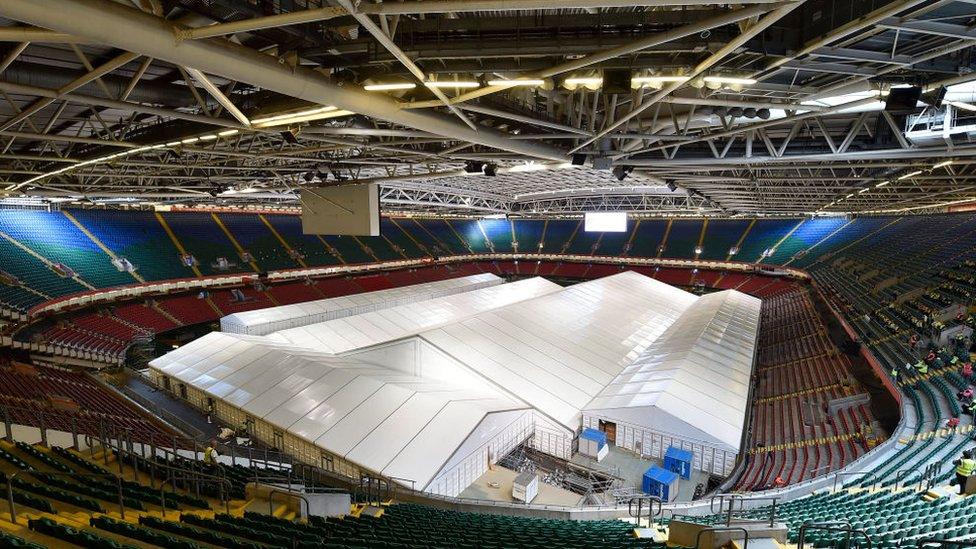
- Published30 May 2020
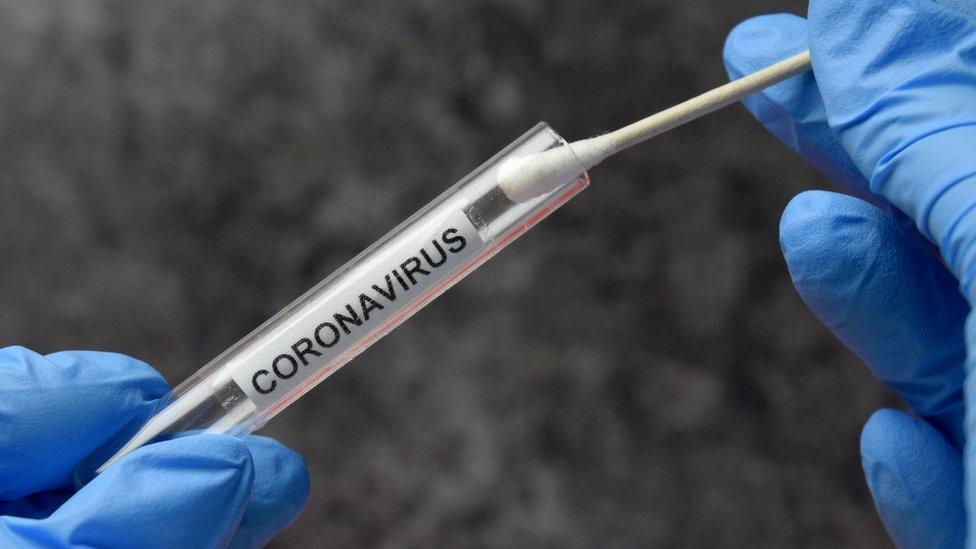
- Published26 November 2020
